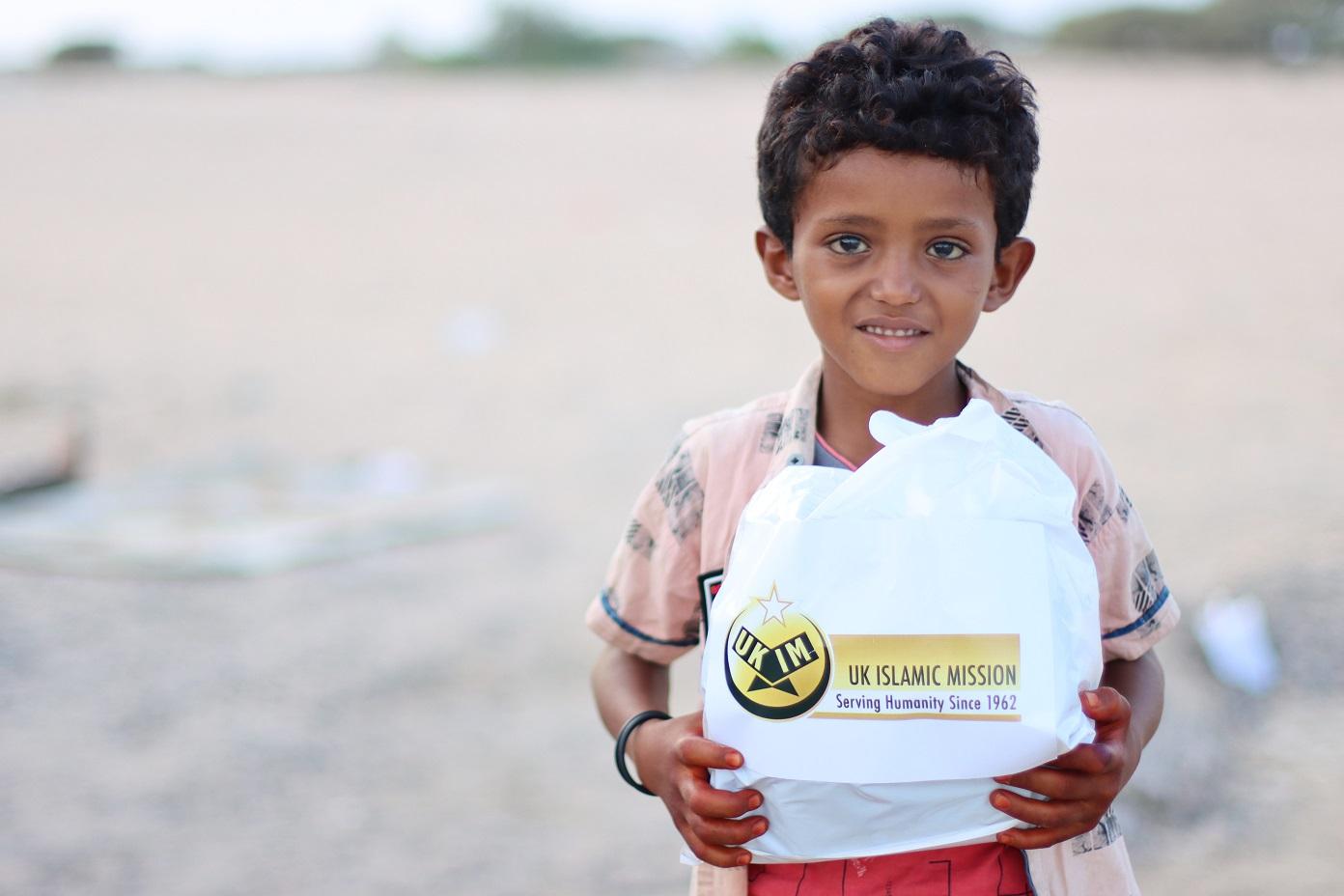
Paying Zakat is a religious obligation that all Muslims must follow, but what is Zakat? The Zakat meaning can be defined as the mandatory charitable donation of a set percentage of one’s wealth. Zakat is the third Pillar of Islam, and to donate Zakat is to worship Allah (SWT) and purify the self.
With all this being said, you may be wondering “how much is Zakat?” Well, Zakat requires one to donate 2.5% of their wealth; not only does this apply to cash, but also commercial items, silver, and gold. Any donation given out of generosity or kindness doesn’t count as Zakat; instead, Zakat is the compulsory distribution of one’s wealth in aid of the poor.
If you’re unsure about how much Zakat you owe, UKIM can help you out. We have a handy online Zakat calculator that allows you to work out your owed Zakat with ease.
The impacts of your Zakat are very powerful, whether it’s to the lives of the poor, your connection with Allah (SWT), or your own purity. These effects include, but are in no way limited to, the following:
Firstly, to pay Zakat is to follow a prophetic tradition. The term prophetic tradition refers to an oral or written prophecy within a culture; in this instance, this is of a religious nature. Islamic tradition states that anyone above the minimum threshold (Nisab) of possessions and wealth must donate 2.5% of their wealth to charity on a yearly basis. In prophetic tradition, this threshold is defined as 612.36 grams of silver or 87.48 grams of pure gold. Despite this, the value of silver and gold is constantly fluctuating, meaning that the threshold figure is prone to change.
Zakat applies to four types of wealth, including money, trading goods, animals, and agricultural products. As far as money is concerned, this also applies to loans, savings, stocks, bonds, and cash. Although this can be paid at any time during the lunar year, many Muslims opt for donating Zakat during Ramadan since blessings are increased during this month.
Zakat is to be spent on those who fall under one of the eight categories of people mentioned in the Qur’an. These include travellers, those in debt, those in captivity, Zakat collectors, the needy, and the poor. On top of this, it can also be donated for the cause of Allah (SWT) and for bringing hearts together.
It’s Islamic principle that wealth shouldn’t be hoarded and that Muslims shouldn’t express greed. Instead, they should opt for a fair distribution of wealth, which Zakat contributes to. This is because it allows one to honestly measure their wealth and share it with those who need it most.

Zakat helps you purify and cleanse your wealth as the mandatory giving acts as a reminder that everything comes from Allah (SWT). By donating Zakat, you’re required to acknowledge that your wealth is only loaned to you as everything is owned by Allah (SWT). Since wealth can’t be taken with you upon death, it’s not something that you should become attached to. On top of this, it encourages you to recognise that you are rich as a result of Allah’s (SWT) grace, whilst others aren’t so fortunate. It’s your duty to assist the poor as they’re poor out of no fault of their own. If wealth is perceived in this way, it reduces the desire to accumulate it and hoard it.
Similarly, Zakat also teaches one to free themselves from the hold of possessions and money. This also contributes to the learning of self-discipline which allows you to grow as a devoted follower of Islam.
Zakat has been a tradition throughout Islamic history, applying to previous Prophets. This is in promotion of the idea that possessions have zero significance upon death. As a result, Muslims are liberated from an obsession with wealth, which is a huge contributing factor to inequality and corruption. Consequently, Zakat brings spiritual benefits, enhances gratitude and contentment, and increases socio-economic harmony.
The payment of Zakat influences Muslims to recognise their blessings, such as their wealth and other provisions. On account of these blessings, all Muslims should aim to alleviate the struggle of disadvantaged individuals in poverty. Ultimately, those in fortunate positions should demonstrate self-restraint as this expresses justice and moral integrity. The world is a transitory stage and Zakat reminds us of this; the sharing of our bounties allows for a peaceful and dignified existence.
There are approximately 1.7 billion followers of Islam worldwide, meaning that Zakat is one of the primary forms of wealth transfer to the poor. When properly executed, Zakat can be an effective economic lever to elevate those in need. Therefore, Zakat must be properly planned so that all the benefits can be attained by the poor. Allah (SWT) commands that all humans must rise above their desires such as jealousy or greed and carry themselves as “stewards of Allah on earth” (Al-Qur’an 2:30). Ultimately, Zakat acts as a catalyst to bring the world closer to a state of equality.
Here at UKIM, we accept your Zakat donations. Simply head over to our Pay Zakat page to make your payment today.
Copyright © 2025 UKIM All Rights Reserved.
UK Registered Charity Since 1962
Charity Registration No. 250275


